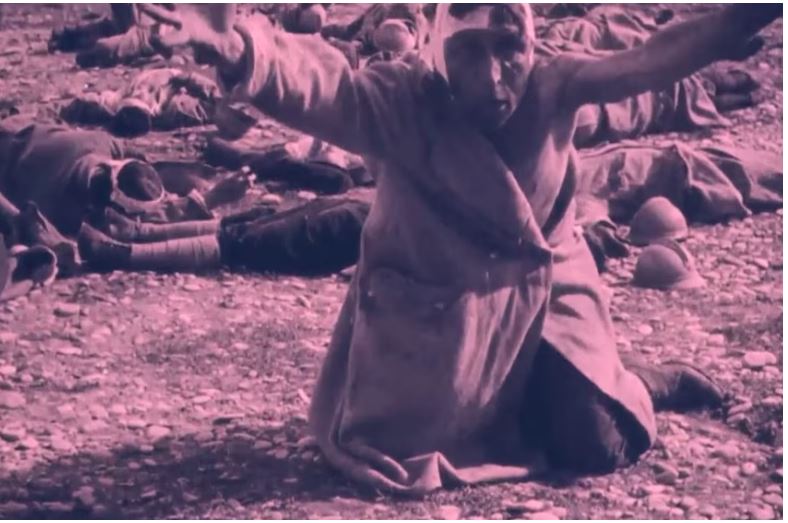How a WWI film from 1919 set the stage for the zombie film genre
Published: 12 April 2023
By Sarah Sicard
via the Military Times web site

The 1919 film "Jaccuse" featured dead soldiers rising from their graves. (YouTube)
Zombie myths trace their roots back as far as ancient Greece, and they have a particular infamy in West African culture, but the first portrayal on the silver screen of the reanimated dead returning to wreak havoc may, in fact, have been in a French silent film about the horrors of World War I called “J’Accuse” (1919).
The honor of the first zombie movie is typically attributed to Victor Halperin’s 1932 film “White Zombie,” starring Bela Lugosi. And while it is the first explicitly stated “zombie” flick, 13 years prior, “J’Accuse” director Abel Gance set the stage for the genre by featuring soldiers of World War I rising from their graves.
“J’Accuse” has been called an anti-war film, given its goal of illustrating the horrors of war. Its protagonist, a poet-turned-soldier named Jean Diaz, begins his story as a Jody in love with a woman named Edith, who happens to be married to her abusive husband François Laurin.
Both men are subsequently drafted into World War I, with Laurin deploying first. Laurin later learns of Edith’s affair, and responds by sending her to Alsace-Lorraine.
Diaz, an officer, is later sent to the same unit, where he is in charge of Laurin. The dynamic proves dangerous for mission and morale alike, but eventually the pair develop mutual respect.
Years pass, and Edith — at the hands of German captors — now has a child. Diaz and Laurin set out for revenge against the Germans by returning to the war. Laurin is injured and ultimately dies, while a shell shocked Diaz returns to the village — and Edith.
One night, Diaz invites much of the village to his home, where he accuses many of the visitors of being complicit in the horrors of the war. He then shares a vision of the nation’s dead rising from their battlefield graves to return home and see whether their loved ones were deserving of their ultimate sacrifices.
Read the entire article on the Military Times web site here:
External Web Site Notice: This page contains information directly presented from an external source. The terms and conditions of this page may not be the same as those of this website. Click here to read the full disclaimer notice for external web sites. Thank you.



